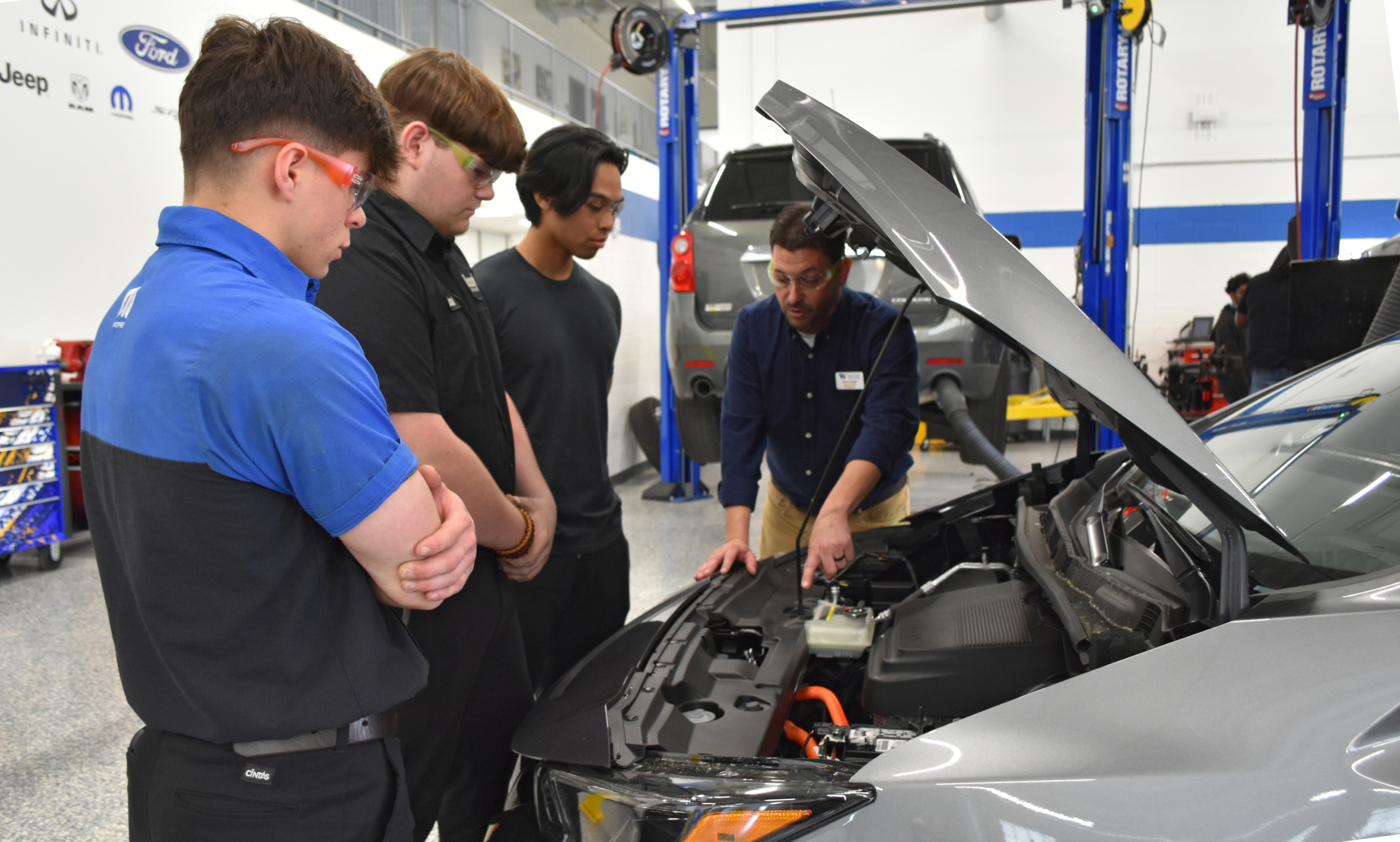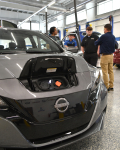Wayne Community College has added an electric vehicle (EV) to its automotive training program and is installing EV chargers.
The new all-electric Nissan LEAF will give students in the WCC Automotive Systems Technology program and first responders who train at the college the opportunity to learn about the latest technology before they encounter it in their jobs.
“They are selling a lot of these vehicles. All major car companies, plus pop-up companies, are going electric.” said Transportation Department Chair Kevin Jordan. “It is practical and cost will make it so that people will want to buy them, so we have to train technicians.”
“The structure of the car is the battery” which has its own diagnostic system, Jordan said. Under the hood, there is an electric motor, a small coolant system, and not much else.
“There’s not a ton of maintenance – nothing related to an internal combustion engine,” he said. “No oil changes, no fluid exchanges.”
In addition to preparing the automotive technicians to work on EVs, the car will help dispel stigmas.
“We are trying to overcome fears and phobias. There are so many myths out there” related to the car’s lithium-ion battery, Jordan explained, but “a regular battery is more dangerous.”
“I’m pretty scared of it but excited to learn about it,” admitted student Jervy Buenaventura.. Exposure to this car is especially relevant for him since he is working at Deacon Jones Nissan as part of his education.
The college has had hybrid vehicles for training – a 2005 Ford Escape and a 2013 Prius – and has addressed fears of electric shock, fire, and toxic fumes.
EV technology is different from that in a hybrid. “Some of the safety practices are the same but this is all electric – no fuel tank and no hot systems,” Jordan said.
The solution for issues or accidents is similar to what people are advised to do with electric appliances when they need attention – unplug them. “Depowering is a big topic. We teach them to pull the service plug. It all stops working,” Jordan said.
“We want them to be safe but not afraid,” he said. “Like it or not, this technology is here.”
The college has recognized that the number of EVs on its campus will grow, too.
Outside of the Ash Building that houses automotive and collision repair programs on the college’s campus, EV charging stations are being installed. More stations will be placed in the parking lot on the south side of the Wayne Learning Center. Together they will provide eight ports for public charging for a minimal credit card charge.
The cost of purchasing and installing the chargers is covered by a $105,472 grant from the North Carolina Department of Environmental Quality’s Division of Air Quality.




